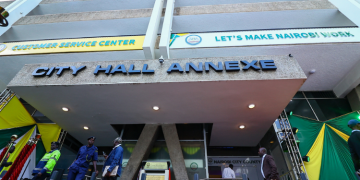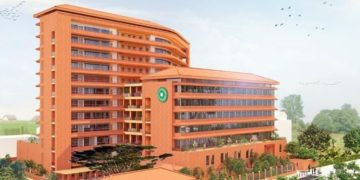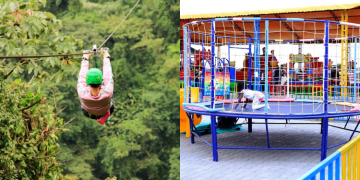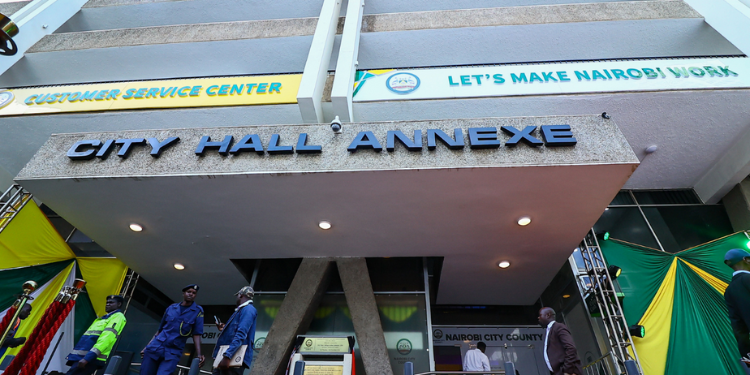Noise pollution is a growing environmental concern, particularly in urban centers where construction, entertainment events, and industrial operations often disrupt communities.
To regulate such activities, Kenya’s National Environment Management Authority (NEMA) enforces the Environmental Management and Co-ordination (Noise and Excessive Vibration Pollution) (Control) Regulations, 2009.
These laws require individuals and organizations to obtain a Noise Pollution Control Permit before conducting activities likely to generate excessive noise or vibrations.
Types of Activities Requiring a Permit
A Noise Pollution Control Permit is mandatory for activities that may cause excessive noise or vibrations. These include:
- Public events such as concerts, rallies, and religious gatherings
- Construction and demolition works
- Industrial operations
- Nightclubs and entertainment venues
- Use of public address systems in open spaces
How to Apply
-
Application Through NEMA
The National Environment Management Authority (NEMA) provides an online platform for applying for noise permits.
Applicants must first create an account on the NEMA Licensing Portal. Once registered, the applicant can log in and navigate to the “Noise” section to initiate the application.
The application form requires details such as:
- Nature and duration of the activity
- Location of the event or operation
- Expected noise levels
- Measures to mitigate noise pollution
-
County-Level Application
The Constitution of Kenya (2010) assigns environmental management—including noise pollution—to both national and county governments.
Counties like Nairobi, Mombasa, and Kisumu have local laws and enforcement units that operate independently of NEMA.
Applicants must visit the environmental department within their county government offices.
Also Read: How to Confirm the Progress of Your NEMA Permit Application
In Nairobi, this is located at City Hall Annex, third floor, under the Noise Pollution Unit, and you will be required to pay Ksh2,200 at Co-operative Bank City Hall Branch via Jambo Pay.
Similar units exist in other counties, often housed within the county council or municipal offices.
Usually, if accepted, the permit is readily available after 2 working days.
Required Documents for a Noise Pollution Control Permit
To obtain a Noise Pollution Control Permit in Kenya, applicants must submit a set of documents that demonstrate compliance with environmental regulations and community consent, including:
- Duly Filled Application Form
Must detail the nature of the activity, location, duration, and expected noise levels.
Accuracy is critical, as the information will be verified during site inspection.
- Police Permit
A formal authorization from the police allowing the event or activity to take place, confirming that the activity is lawful and has been vetted for public safety.
Also Read: How to Register Your Environmental Audit Report in Kenya
- Letter of Consent from Neighbours
Signed consent from at least ten neighboring residents or businesses demonstrates community awareness and approval of the activity.
- Venue Contract or Agreement
A signed contract between the applicant and the venue owner or manager confirms the location and duration of the activity.
- Environmental Mitigation Plan (if applicable)
An Environmental Mitigation Plan is required for large-scale or high-impact activities and outlines measures to reduce or manage noise pollution, such as sound barriers, time restrictions, or equipment specifications.
- Payment Receipt
Proof of payment for application and licensing fees is a must.
Fees vary depending on the county and type of permit:
- Application for license: Ksh200
- License fee: Ksh2,000
- Application for permit: Ksh500
- Permit fee: Ksh5,000
-
National ID or Company Registration Documents
For individual applicants: a copy of the national ID or passport.
For organizations: certificate of incorporation or business registration.
-
Event Program or Schedule (for public events)
Helps assess peak noise periods and determines compliance with time-based noise limits.
-
Technical Specifications of Equipment
For activities involving sound systems, machinery, or construction tools and includes decibel ratings and operational guidelines.
Compliance ensures environmental protection and community well-being, while violations can attract significant penalties.
Follow our WhatsApp Channel and X Account for real-time news updates.





![Govt Moves To Allay Fears Over 1.1 Million Grade 9 Learners Placement Crisis Bitok Releases All 2026 Academic Term Dates [Full List]]( https://thekenyatimescdn-ese7d3e7ghdnbfa9.z01.azurefd.net/prodimages/uploads/2025/09/ps-bitok-cs-ogamba-360x180.png)



































































![Govt Moves To Allay Fears Over 1.1 Million Grade 9 Learners Placement Crisis Bitok Releases All 2026 Academic Term Dates [Full List]]( https://thekenyatimescdn-ese7d3e7ghdnbfa9.z01.azurefd.net/prodimages/uploads/2025/09/ps-bitok-cs-ogamba-120x86.png)
